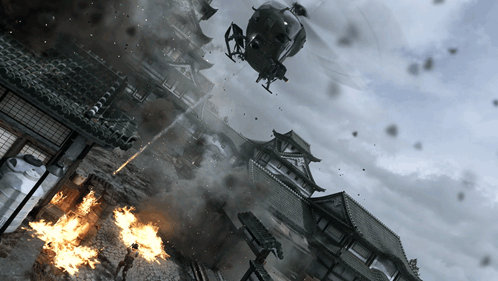Contemplating World War III

As the specter of global conflict looms large in the public imagination, spurred on by ongoing geopolitical tensions and a pervasive sense of uncertainty, it becomes crucial to explore not only the possibility of such a war but also its potential consequences and the strategies that might define it.
This thought experiment, while grim, is vital for understanding how a modern World War might unfold, influencing international policies and individual perceptions alike.
The Theoretical Outset of World War III
Imagine a scenario where tensions in key global flashpoints escalate simultaneously. The conflict could potentially begin with a massive military operation, such as a large-scale amphibious assault involving a mix of military and civilian fleets.
Such a move would likely be preempted by intense cyber and electronic warfare aimed at crippling the opponent’s reconnaissance and defense capabilities, illustrating the modern battlefield where digital warfare plays a pivotal role.
Strategic Deployment and Immediate Reactions
In response to initial aggressions, alliances like NATO or coalitions led by superpowers would likely mobilize rapidly, deploying advanced missile defense systems and utilizing strategic air force capabilities.
The first few hours of the conflict would be critical, with both sides attempting to neutralize each other's key military assets, including airfields, command centers, and naval forces. This phase would likely see the use of some of the most sophisticated weaponry in the arsenals of the involved powers, from stealth fighters to advanced ballistic missiles.
The Role of Global Alliances and Tactical Decisions
The involvement of major military alliances and the strategic decisions made by these entities would significantly influence the progression of the war.
For instance, the decision to defend a strategic ally or territory could bring a superpower directly into conflict, expanding a regional conflict into a global one.
The deployment of carrier groups, strategic bombers, and other formidable military assets would be aimed at both defending allied territories and projecting power to deter further escalation.
Hypothetical Scenarios Across Different Theaters
Different regions would likely see varied styles of combat and strategic priorities. In Europe, the flat expanses might favor tank battles and rapid troop movements, while in the Pacific, naval and air superiority would be crucial due to the vast distances and strategic island territories.
Each theater would present unique challenges and would likely be the focus of intense military planning and resource allocation.
The Horrific Human Cost and Technological Warfare
As modern warfare technologies evolve, the potential for destruction increases exponentially. The use of drones, cyberattacks, and automated systems would not only make conflicts more deadly but also more impersonal.
Civilians would find themselves at unprecedented risk due to the interconnected nature of global infrastructures and economies, highlighting the need for stringent international regulations on warfare practices.
The Potential Aftermath and Long-Term Implications
The aftermath of such a conflict, even if not nuclear, would be devastating. Economies could collapse, regional political orders could be reshaped, and the environmental impact could be severe.
The recovery period would extend over decades, with political, social, and economic aftershocks being felt worldwide. The potential for a reshaped global order, with new power dynamics and alliances, would likely emerge from the ruins of such a conflict.
Conclusion
While the prospect of World War III remains a hypothetical scenario, it serves as a stark reminder of the importance of diplomacy, international cooperation, and conflict prevention. As global tensions rise, the lessons drawn from such speculative analyses become increasingly relevant, urging world leaders and policymakers to prioritize dialogue over confrontation.
The hope remains that by understanding the potential horrors of such a conflict, the international community can steer away from these catastrophic paths and towards a more stable and peaceful global order.
Join on InLeo Discord Channel here

Posted Using InLeo Alpha
At present the situation is going on like a war but it should not be like this every time we have seen that the lives of innocent people have been lost.
Hello.
There is reasonable evidence that this article is machine-generated.
We would appreciate it if you could avoid publishing AI-generated content (full or partial texts, art, etc.).
Thank you.
Guide: AI-Generated Content = Not Original Content
If you believe this comment is in error, please contact us in #appeals in Discord.